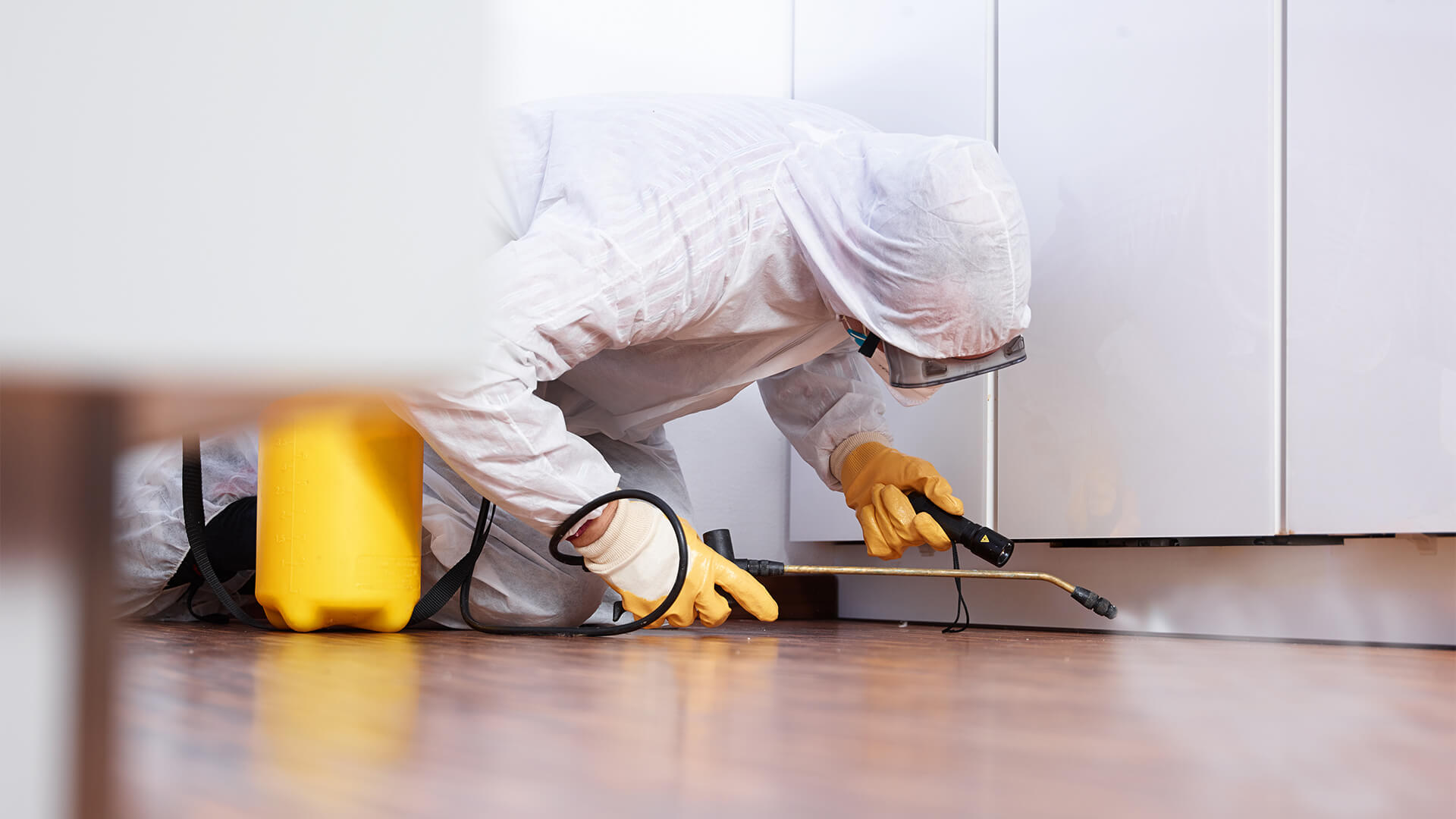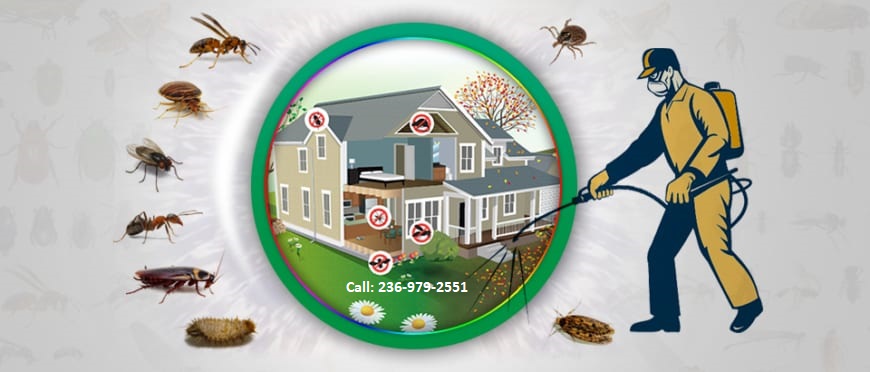Safe and Trusted Pest Control for Lasting Protection
Efficient pest monitoring calls for a complex method that stabilizes environmental integrity with the demand for effective insect suppression. The subtleties of these methods might not be instantly clear, motivating a more detailed assessment of the practices that can lead to lasting pest control results.
Understanding Parasite Control Approaches
Insect control incorporates a variety of approaches targeted at managing and getting rid of unwanted pests and rodents that can endanger both health and property. Recognizing these methods is crucial for efficient pest management.
The primary groups of pest control techniques consist of mechanical, organic, and chemical methods. Mechanical methods include physical obstacles and catches to avoid insect access and capture undesirable types. For instance, utilizing displays on home windows or utilizing sticky catches can considerably decrease bug populaces without presenting dangerous substances.
Chemical pest control is frequently the most identified approach, utilizing chemicals to get rid of bugs. These chemicals can be effective but have to be made use of with caution to stay clear of damaging impacts on non-target species and the setting.
Advantages of Eco-Friendly Solutions
Exactly how can eco-friendly solutions change insect control practices? The fostering of environment-friendly insect control approaches supplies many benefits, significantly enhancing the performance and security of insect monitoring (exterminator coquitlam). These remedies use natural components, reducing the reliance on unsafe chemicals that can present risks to human wellness and the environment. This shift not just protects households and pet dogs but likewise decreases the potential for soil and water contamination.

Another benefit is the favorable influence on neighborhood biodiversity. Environment-friendly options are created to target details bugs while maintaining helpful bugs and wildlife, promoting a well balanced ecosystem. This approach aligns with the expanding customer demand for sustainable techniques, improving the reputation of parasite control suppliers.
Integrated Parasite Management Approaches
The implementation of environmentally friendly solutions normally causes the adoption of Integrated Parasite Administration (IPM) techniques, which even more enhance bug control effectiveness. IPM is a holistic technique that integrates numerous techniques to take care of pest populaces while reducing ecological effect. This strategy emphasizes making use of biological, social, mechanical, and chemical controls, making sure a balanced and lasting method of bug management.
One basic aspect of IPM is the detailed evaluation of parasite activity and ecological conditions. By checking insect populaces and identifying their life process, specialists can implement targeted treatments that interfere with the insect's habitat or lifecycle, minimizing reliance on chemical pesticides. Furthermore, social practices such as plant turning and habitat control can dramatically decrease parasite establishment and reproduction.
One more crucial element is the usage of organic control representatives, such as beneficial bugs or microbes, which can normally suppress pest populations. When chemical applications are needed, IPM focuses on the usage of low-risk pesticides and applies them precisely, lessening direct exposure to non-target microorganisms and people.
Incorporating IPM techniques not only enhances bug control performance yet also advertises a more secure ecosystem, aligning with the growing demand for sustainable practices in bug monitoring.
Safe Practices for Home Owners
Recognizing the importance of safe practices in pest Get More Info control can empower house owners to successfully handle bug concerns while securing their health and wellness and the atmosphere. Carrying out precautionary steps and non-toxic methods is important in lessening exposure to damaging chemicals.
Home owners must first evaluate their environment for problems that attract bugs, such as standing water, clutter, and food waste. Routinely cleansing and sealing access points can hinder insects from getting into the home. Using all-natural deterrents, such as vital oils or diatomaceous planet, can supply reliable options to chemical pesticides.
When chemical therapies are necessary, home owners ought to choose products that are particularly classified as safe for household usage. It is vital to follow application guidelines diligently to avoid too much exposure. Using targeted treatments in areas where pests are identified, rodent control company rather than covering spraying, can considerably lower chemical use.
Last but not least, maintaining open communication with bug control experts is essential. Homeowners ought to ask about the security of items used and request eco-friendly options whenever possible. By adopting these risk-free techniques, homeowners can create a healthier living environment while successfully taking care of parasite issues.

Tips for Long-Term Protection
Developing a parasite management approach that stresses long-term security can considerably improve the effectiveness of the safe practices formerly gone over. To achieve this, property owners ought to apply normal evaluations of their property, concentrating on hidden areas such as attic rooms, basements, and crawl rooms. Early discovery of insect activity is crucial in avoiding problems from holding.
These methods minimize attractants that draw parasites right into the home. Sealing access factors, such as fractures around windows and doors, can effectively obstruct potential parasite accessibility.
Landscape design needs to additionally be taken into consideration; maintaining plants trimmed and preserving a range in between greenery and the home minimizes hiding places for parasites. Making use of natural deterrents, such as vital oils or diatomaceous planet, can additionally dissuade invasions without turning to severe chemicals.
Lastly, working together with an expert bug control solution for regular analyses can supply an extra layer of safety and security. These experts can provide customized suggestions and progressed therapies, ensuring that your home stays safeguarded against pests in the long term.
Final Thought
In conclusion, risk-free and trustworthy parasite control requires a complex technique that highlights environment-friendly approaches and incorporated insect monitoring. By applying natural deterrents, performing normal evaluations, and keeping appropriate sanitation, homeowner can substantially decrease pest populations while safeguarding beneficial bugs and wikipedia reference the atmosphere. Partnership with professional pest control services boosts the effectiveness of these techniques, making certain tailored services that supply enduring defense and assurance versus future invasions.
Effective parasite monitoring calls for a complex method that stabilizes ecological integrity with the requirement for efficient pest suppression. The fostering of environmentally friendly parasite control methods supplies numerous advantages, significantly enhancing the effectiveness and security of bug monitoring.The implementation of green solutions normally leads to the adoption of Integrated Bug Management (IPM) approaches, which additionally boost bug control efficacy. exterminator coquitlam. By monitoring insect populations and determining their life cycles, practitioners can execute targeted interventions that interfere with the bug's habitat or lifecycle, minimizing reliance on chemical pesticides.In final thought, trustworthy and secure bug control needs a diverse strategy that stresses eco-friendly approaches and incorporated insect administration